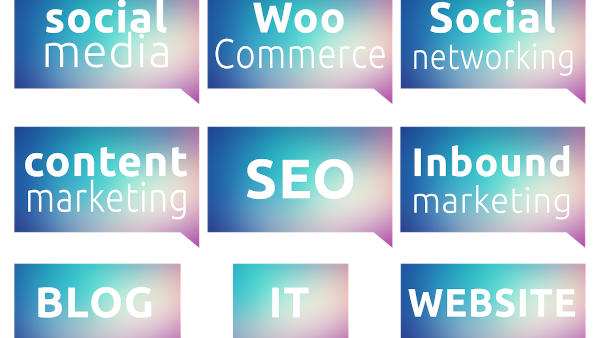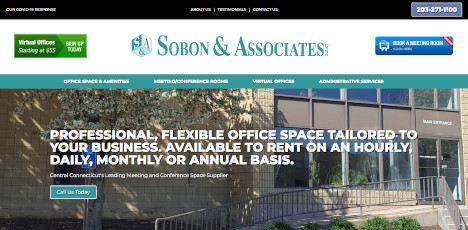
Reputation Marketing: Trust-Driven Growth in Digital Era
In today's hyperconnected world, a business's credibility is its most important property. Reputation marketing has emerged as an important method for companies aiming to prosper in a period where customer viewpoints can make or break a brand name. This powerful technique integrates traditional reputation management with proactive marketing methods to not just secure but likewise take advantage of a business's reputation to drive growth and success.
At its core, reputation marketing has to do with actively shaping and promoting the general public understanding of your brand name. It exceeds simply monitoring and reacting to customer feedback; it involves tactically cultivating favorable experiences, encouraging satisfied customers to share their stories, and enhancing these favorable narratives across different platforms. In an age where customers rely greatly on online evaluations and social proof before making getting decisions, reputation marketing has actually become an essential tool for companies of all sizes.
The foundation of reliable reputation marketing depends on delivering exceptional services or products and offering exceptional client experiences.

No quantity of marketing can compensate for substandard offerings or poor service. Nevertheless, when you regularly exceed client expectations, you create a wellspring of favorable belief that can be harnessed to sustain your marketing efforts. This is where reputation genuinely shines-- it changes pleased clients into brand supporters, leveraging their genuine experiences to draw in brand-new organization and enhance commitment among existing clients.
One of the primary channels for reputation marketing is online review platforms. Websites like Yelp, Google Reviews, and industry-specific evaluation sites have actually become go-to resources for consumers investigating product and services. Encouraging delighted clients to leave positive reviews on these platforms can substantially increase your presence and reliability. However, it's important to approach this morally-- never use rewards for evaluations or engage in phony evaluation plans, as these practices can badly harm your reputation if discovered.
Social media platforms play an important function in reputation marketing as well.

They provide an immediate, direct line of interaction with your audience and deal opportunities to showcase your brand name personality, react to client queries, and emphasize positive feedback. By actively engaging with your followers and sharing user-generated content that shows well on your brand, you can create a favorable buzz that extends far beyond your immediate client base.
Content marketing is another effective tool in the reputation marketing toolbox. By producing top quality, helpful material that addresses your audience's needs and interests, you place your brand as a thought leader in your industry. This not only helps to construct trust and reliability however also improves your search engine rankings, making it simpler for prospective customers to find you online.
Case studies and testimonials are especially efficient kinds of material for reputation marketing. They supply concrete examples of how your services or products have benefited real clients, providing social evidence that can be extremely persuasive to prospects.

When crafting these, focus on informing compelling stories that highlight specific problems you fixed and the measurable results achieved.
Influencer partnerships can also play a considerable role in reputation marketing, especially for brands targeting more youthful demographics. Collaborating with respected figures in your industry or specific niche can provide trustworthiness to your brand and expose you to new audiences. Nevertheless, it's important to choose influencers whose values line up with your brand and who have genuine connections with their followers.
Reputation marketing isn't almost promoting the positive; it also includes successfully managing unfavorable feedback. How a business responds to criticism can often have a more substantial influence on its credibility than the initial problem. Dealing with unfavorable evaluations or remarks without delay, expertly, and constructively shows your commitment to client fulfillment and can frequently turn critics into advocates.
Carrying out a comprehensive reputation marketing strategy needs a multi-faceted method.

Start by performing a comprehensive audit of your current online credibility throughout all relevant platforms. This will assist you determine areas of strength to utilize and possible weaknesses to attend to. Establish a system for monitoring points out of your brand name throughout the web, consisting of social media, review websites, and news outlets. This permits you to react rapidly to both positive and negative feedback.
Create a clear set of guidelines for how your group should engage with customers online, ensuring consistency in tone and messaging across all touchpoints. Invest in training your customer-facing staff on the concepts of reputation marketing, stressing the importance of every interaction in forming your brand name's image.
Regularly evaluate the data from your reputation marketing efforts to comprehend what's working and what isn't. Track metrics such as review sentiment, social networks engagement rates, and the impact of favorable evaluations on conversion rates.
Utilize these insights to refine your method and assign resources more effectively.
As the digital landscape continues to develop, so too will the practice of reputation marketing. Emerging technologies like expert system and artificial intelligence are currently being used to analyze huge amounts of online data, providing much deeper insights into consumer belief and assisting brand names react better to track record challenges.
In conclusion, reputation marketing represents a paradigm shift in how services approach their public image. By actively cultivating and promoting a positive credibility, companies can develop a virtuous cycle of client complete satisfaction, favorable word-of-mouth, and company development. In an era where trust is significantly limited and valuable, a strong track record isn't simply good to have-- it's a critical competitive benefit. Companies that master the art of reputation marketing will find themselves well-positioned to prosper in the digital age, constructing long lasting relationships with consumers and driving sustainable success.







